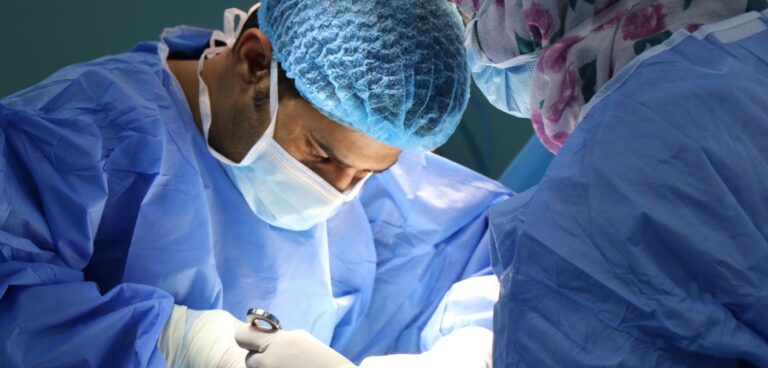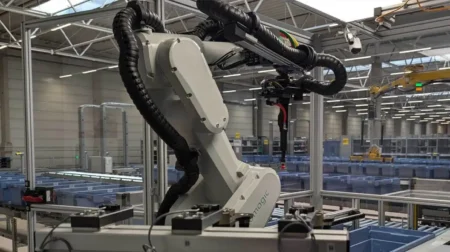A study that will compare human and robot performance during hip surgery has received £1m in funding from the National Institute for Health and Care Research (NIHR) in an NHS first.
The aim of the RACER-hip trial will be run in collaboration between Warwick Medical School at the University of Warwick, University Hospitals Coventry and Warwickshire (UHCW) NHS Trust and the Royal Orthopaedic Hospital (ROH) in Birmingham.
In recent years, especially in the USA, more surgeons have been using robotic arms to help them during surgery. The robotic arm prepares the bone for surgery and inputs the components into a three-dimensional plan.
Use of this technology potentially offers more precise results, partially due to reduced opportunities for human error.
There is currently no industry consensus about whether or not robot or human performance is superior in a surgical environment.
Read more: Robotic surgery is safer, according to UK university study
The trial is being led by two surgeons, Mr Peter Wall, from both ROH and UCHW, and Professor Ed Davis from ROH.
Davis said: “The research will help orthopaedic surgeons across the world to better understand the most effective tools for performing hip replacement surgery and ensure the very best outcomes for their patients.
“This study will also include an in-depth health economic analysis to inform the NHS if this technology should be widely adopted.”
Each treatment group will be filled with an equal number of randomly selected participants. The two groups will be asked questions about the long-term effects of the surgery on their health and lifestyle to determine which method offers better value for money.
A minimum of six NHS hospitals across England and Scotland will participate in the trial.
The first trial site, opened at ROH and the Northumbria Healthcare NHS Foundation Trust, has just acquired one of the robots for the trial.
This will be the first time robots have been used for hip operations by the NHS in the Northeast of England.
The robots’ manufacturer, Stryker, will provide support with costs to reduce the financial burden on the hospitals.








